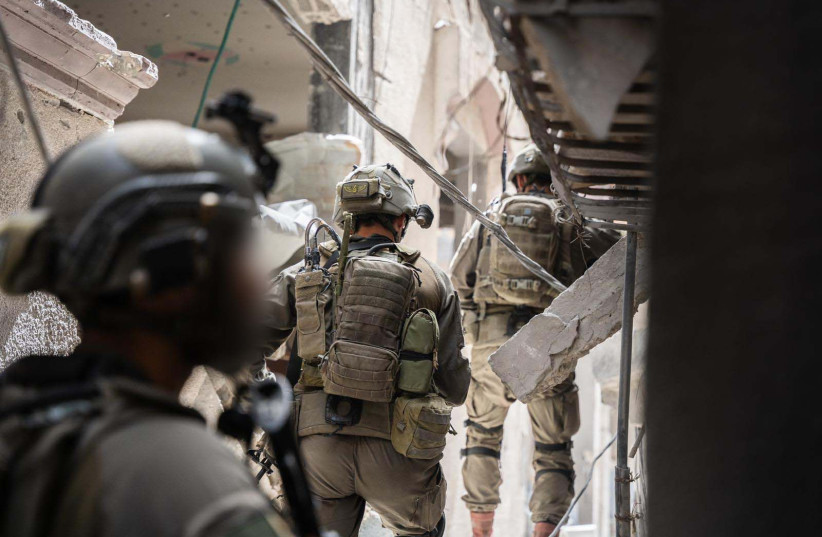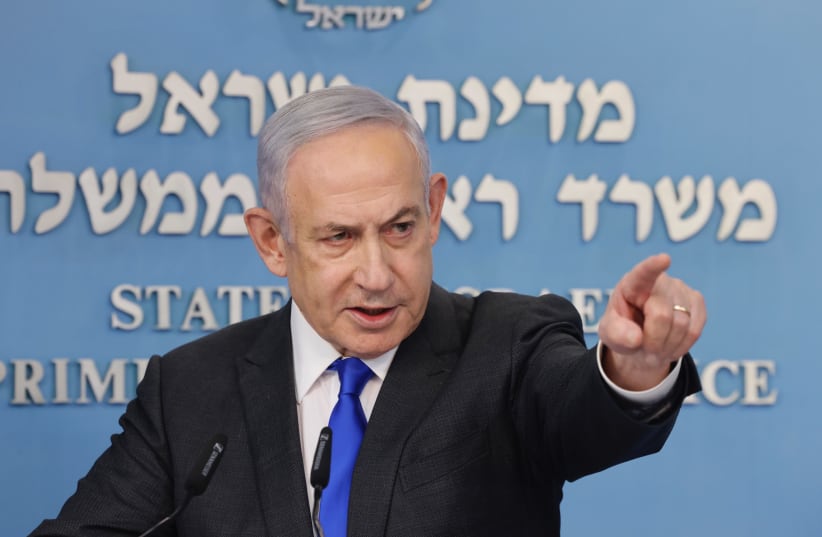Netanyahu Announces Date for Rafah
Prime Minister Benjamin Netanyahu set a date for an IDF operation in Rafah to destroy the remaining Hamas battalions, as the United States reiterated its opposition to such a step, which it fears will create a humanitarian disaster.
“This victory requires entering Rafah and eliminating the terrorist battalions there. This will happen; there is a date,” Netanyahu said in a brief video message he issued to the public on Monday night.
He spoke after the IDF removed Brigade 98 from Gaza, a move believed to be necessary so the troops could rest and regroup in advance of any further military activity in the enclave.
It sparked speculation, however, that Israel had decided not to send the IDF into Rafah. National Security Minister Itamar Ben-Gvir threatened to leave the government if the IDF did not enter Rafah or if it prematurely ended the war.
Israel has insisted that it can not oust Hamas from Gaza without such an operation.


US National Security Communications Advisor John Kirby told reporters that “we have consistently made clear that we don’t support a major ground operation in Rafah.
“I would also add that we don’t see any signs that such a major ground operation is imminent, or that these troops are being repositioned” for such an operation, Kirby said.
“The Israelis have assured us that there will be no operations in and around Rafah until we have had a chance to talk to them at greater length about the viable options and alternatives to a major ground operation,” Kirby said.
Strategic Affairs Minister Ron Dermer and National Security Adviser Tzachi Hanegbi are expected to travel to Washington to meet with officials from the Biden administration.
Netanyahu had canceled an initial meeting on the issue. A virtual conversation has since been held, but no date has been set for an anticipated face-to-face conversation, Kirby said.
US State Department spokesperson Matthew Miller said Israel had not provided the Biden administration with any dates for a Rafah operation.
The United States has been concerned that a Rafah operation is not possible given that more than 1.3 million Palestinian civilians are in the area, having fled there from the north.
The IDF’s strike that accidentally killed seven World Central Kitchen workers last week has only highlighted its concern about the humanitarian toll of the Gaza war.
Miller said, “We have made clear to Israel that we think a full-scale military invasion of Rafah would have an enormously harmful effect on civilians and that it would ultimately hurt Israel’s security.”
He also referenced the steps Israel has taken to improve humanitarian conditions on the ground, including agreeing to open the Erez crossing and to allow goods for Gaza to be unloaded at the Ashdod port.
Israel, however, has yet to open the Erez crossing and Miller said that Israel’s initial steps were welcome but still insufficient.
“It is not just important that they take initial steps to facilitate the increase of humanitarian assistance, but that increased flow of humanitarian assistance is sustained over time,” Miller said.
“Some of those steps have been important, but they haven’t been sufficient,” he stated.
US President Joe Biden warned Netanyahu in a phone conversation last week that he would change his policy on Gaza unless Israel provided sufficient humanitarian supplies to Palestinians in the enclave and ensured the protection of civilians there.






.jpeg)
Comments
Post a Comment